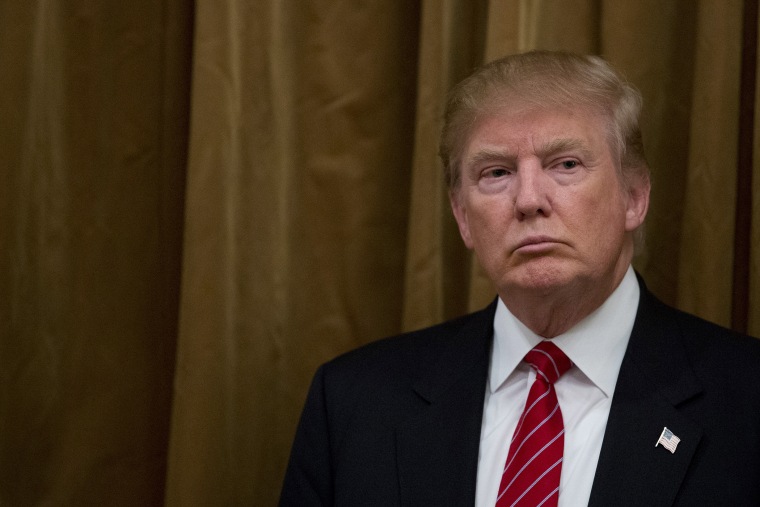In recent weeks, the possibility of Donald Trump running for president on a third-party ticket -- if his Republican campaign comes up short, of course -- has been a frequent topic of conversation in campaign circles, and the candidate himself has
stoked the fires. It came up at the start of last week's debate, when Trump
vowed, "If I'm the [GOP] nominee, I will pledge I will not run as an independent,"
It was an unintentionally amusing line, which continued to make Republican insiders quite nervous. Yesterday, ABC News
reported that Trump, according to one of his "senior advisers," may soon rule out an independent bid and commit fully to the Republican Party's nominating process.
Yahoo News
reported this morning that Trump is now pushing back, insisting that the ABC report was wrong.
Trump, the current leader in the race for the Republican nomination, refuted an ABC News report that he is considering ruling out a third-party run. "I'm running as a Republican, I'm leading in every poll.... I'm leading all over the place and I want to run as a Republican," he said. "If I am treated fairly that's the way it's going to be, but I want to keep that door open. I have to keep that door open because if something happens where I'm not treated fairly, I may very well use that door."
Obviously, this isn't the answer Republican officials wanted to hear. But there's a potential problem on the horizon, which Trump may not be fully prepared for.
They're called "sore-loser" laws. Vox
reported yesterday:
Already in Ohio and Michigan, existing sore loser laws would block a Trump third-party bid if he runs in the primaries and loses. And if Republicans pass similar measures in other swing states, the damage from a third-party or independent Trump candidacy could be contained. It's a sort of nuclear option that the party could take in a last-ditch effort to stop Trump from tanking their presidential chances.
The idea is pretty straightforward: some states prohibit candidates from running in a party primary, losing, and then running as an independent or on some other party's ticket.
For Trump, this creates a practical challenge for which there is no easy solution. He's running in Republican primaries and caucuses now, and if he comes up short, some states simply won't allow him to appear on the ballot anyway. This includes Ohio, one of the nation's most important swing states.
Looking ahead, this may get a little tricky. For example, Trump might consider skipping the Ohio GOP primary in order to leave open the possibility of an independent campaign in Ohio in the general election. It's also possible state Republican officials will recognize this problem and start passing new "sore-loser" laws now, in anticipation of Trump trouble later.
For now, it's a moot issue -- Trump is leading in every GOP poll. But given how often he talks about a possible third-party run, this is an angle worth watching.
